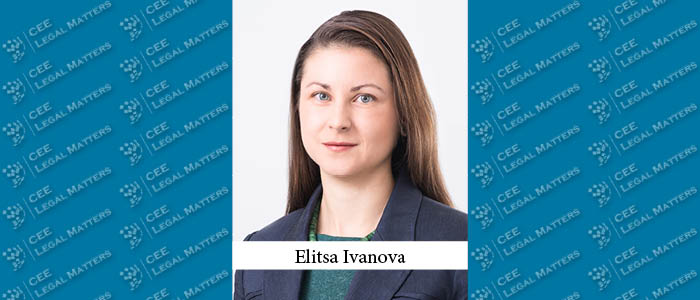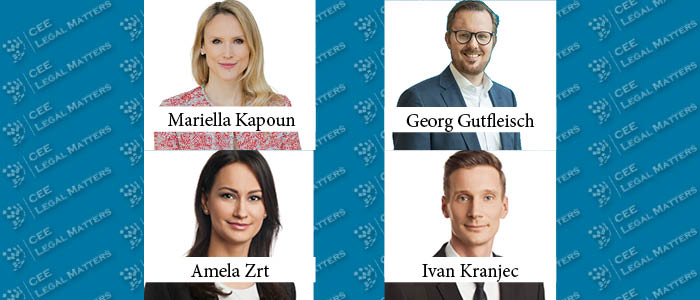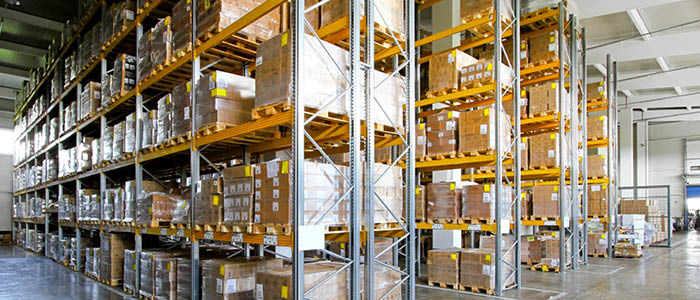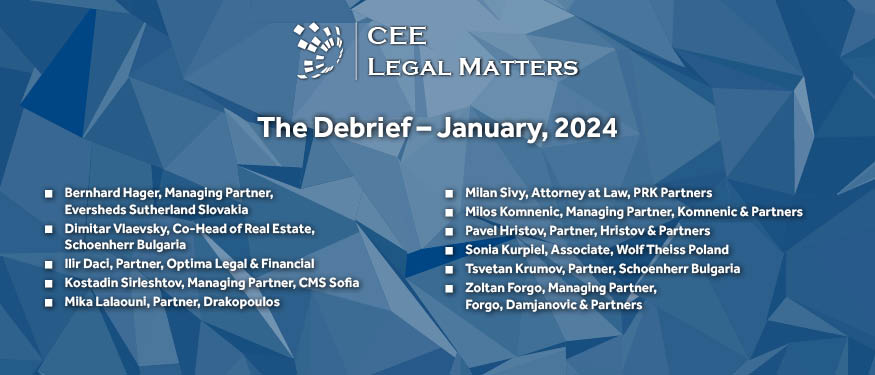Bulgaria is nearing the home stretch of its Eurozone integration and OECD accession plans, according to CMS Partner Elitsa Ivanova, with renewables, ESG, fintech, and digitalization the hot topics for lawyers and bankers alike.
CMS Advises Enka on Licensing 40-Megawatt PV Project in Bulgaria
CMS has advised Istanbul-based engineering and construction company Enka on the licensing of its 40-megawatt Town Up 8 photovoltaic project before the Bulgarian Energy and Water Regulatory Commission.
CMS Advises SINO-CEEF on Acquisition of 88.4-Megawatt Operational PV Portfolio from from Alternus
CMS has advised a SINO-CEEF group company on the acquisition of 25 operational photovoltaic power plants in Poland from the Alternus Energy Group. Soltysinski Kawecki & Szlezak reportedly advised the seller.
CMS and Filip & Company Advise on Banca Transilvania Purchase of OTP Bank Romania
CMS has advised the OTP Group on the binding agreement to sell its stake in OTP Bank Romania and all subsidiaries to Banca Transilvania for a combined purchase price is EUR 347.5 million. Filip & Company advised Banca Transilvania on the acquisition.
CMS Successful for Free Energy Project Oreshets Against Bulgaria's Ministry of Finance
CMS has successfully represented the interests of Free Energy Project Oreshets – formerly owned by CEZ and currently a part of the Eurohold Group – in a dispute against the Bulgarian Ministry of Finance.
Linklaters Advises EBRD on EUR 75 Million Investment in R.Power Alongside 3SIIF
Linklaters has advised the EBRD on its EUR 75 million investment in Poland's R.Power alongside the Three Seas Initiative Investment Fund. Slaughter and May and CMS's Luxembourg office reportedly advised 3SIIF.
Did You Know: 2023 Leaderboards in Bosnia and Herzegovina, Moldova, Montenegro, North Macedonia, and Slovenia
Did you know that, using the Activity Rankings function of the CEELMDirect website, you can look up the 2023 deal leaderboards in each CEE market, including Bosnia and Herzegovina, Moldova, Montenegro, North Macedonia, and Slovenia?
Norton Rose Fulbright and CMS Advise on mBank Financing for 98-Megawatt Sunly PV Portfolio
Norton Rose Fulbright has advised mBank on financing the construction of a 98-megawatt photovoltaic portfolio sponsored by Sunly. CMS advised Sunly.
Austria's Mariella Kapoun and Georg Gutfleisch and Slovenia's Amela Zrt and Ivan Kranjec Make Partner at CMS
Mariella Kapoun and Georg Gutfleisch have become Partners at CMS in Austria, while Amela Zrt and Ivan Kranjec have become Partners at CMS in Slovenia, as part of the firm's latest promotion round.
Did You Know: The 2023 Lawyer and Firm Leaderboard in Romania
Did you know that, according to the Activity Rankings function of the CEELMDirect website, a total of twenty law firms and seventeen individual lawyers worked on five or more reported Romanian client matters in 2023?
CMS Advises Komercni Banka on Financing Mercedes Benz Praha Car Dealerships Acquisition
CMS has advised Komercni Banka on its financing for the acquisition of the Mercedes Benz Praha car dealerships. Badokh reportedly advised the borrower – the RCM Group.
CMS Advises UniCredit Bank on EUR 39 Million Financing for Enery's Comcris Energy
CMS has advised UniCredit Bank on its EUR 39.3 million financing for Enery group subsidiary Comcris Energy for the construction of a 51.4-megawatt solar ground-mounted photovoltaic project located in Sarmasag, Romania. Clifford Chance Badea reportedly advised the borrower.
Schoenherr, CMS, and Noerr Advise on Ullo Logistic Center Agreements Between OTP REIF, Rossmann, and Panattoni
Schoenherr has advised the OTP Real Estate Investment Fund on its purchase of a land plot in Ullo, Hungary, from Rossmann, the development agreement for a BTS logistic center on the site with development manager Panattoni, and a long-term lease agreement for the facility with Rossmann as tenant. CMS and Noerr advised Panattoni. PwC Legal reportedly advised Rossmann.
PwC Legal Advise Blue Sea Capital on Acquisition of Telekom Srbija Tower Portfolio
PwC Legal, working with Van Campen Liem, has advised Blue Sea Capital on co-investing to acquire the Telekom Srbija telecommunications tower portfolio alongside Actis and in co-operation with Andrej Jovanovic’s family office.
Did You Know: Topping the 2023 Charts in Poland
Continuing our review of 2023, did you know that a total of twelve lawyers worked on seven or more reported client matters in Poland in 2023 – a step up from the ten lawyers who worked on that many in 2022? The 2023 partner leaderboard was led by Tomasz Rogalski of Norton Rose Fulbright, who worked on a market-leading 15. Clifford Chance’s Andrzej Stosio, whose 11 reported deals in 2022 led the market, repeated that number in 2023, tying him for second place with White & Case’s Marcin Studniarek.
Did You Know: 2023 CEE Partner Leaderboards
Did you know that while only five lawyers worked on ten or more CEE client matters reported by CEE Legal Matters in 2022, a total of fourteen lawyers reached that level in 2023? The 2023 leaderboard was led by Milos Felgr of Clifford Chance in Prague, who worked on a remarkable 20 CEELM-reported client matters last year, with Alper Onar of Istanbul’s Aksan Law Firm, who worked on 19, close behind. Fellow Turk Kerem Turunc, the Managing Partner of Turunc, worked on 17 reported deals, while Djordje Nikolic of NKO Partners in Belgrade worked on 16, and Tomasz Rogalski of Norton Rose Fulbright in Warsaw worked on 15.
DLA Piper Advises Generali CEE on Acquisition of 4Life Direct Poland from 4Life Direct International
DLA Piper has advised Generali CEE Holding on its full acquisition of 4Life Direct Poland from 4Life Direct International. CMS reportedly advised 4Life Direct International.
The Debrief: January 2024
In The Debrief, our Practice Leaders across CEE share updates on recent and upcoming legislation, consider the impact of recent court decisions, showcase landmark projects, and keep our readers apprised of the latest developments impacting their respective practice areas.
















